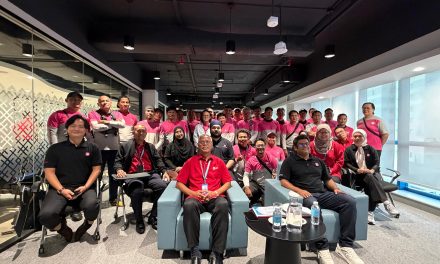In 2026, 61% of organisations will hire for contract roles, as professionals are increasingly receptive to contract work opportunities while 86% of organisations have implemented or plan to introduce AI, with most acknowledging the need to reskill or upskill up to half their workforce in the next five years to keep pace with AI advancements. The mismatch in perceptions around salary and benefits between organisations and job seekers continues to grow.
Malaysia is expected to witness an upward trend in contract hiring strategies next year, according to Salary Survey Malaysia 2026, conducted by global talent solutions partner Robert Walters. Half of the organisations surveyed (51%) have already begun exploring contract hiring as a talent strategy, while a further 10% are expected to do so in the next year. Despite the added investment involved in training and onboarding, top motivations for this shift in hiring strategy include addressing short-term talent needs, managing headcount challenges and fulfilling requirements for specialised expertise.
The survey notes a growing interest among professionals in project or contract-based roles, with 78% stating they may be open to considering these opportunities, given the right terms such as contract duration, flexible work arrangements and a clear scope of work. Unsurprisingly, those who are unswayed cite preference for the stability that permanent employment offers as the main reason for their resistance.

“As we look towards 2026, there is a pressing need for organisations in Malaysia to find innovative ways to navigate talent challenges. Against a backdrop of subdued global economic growth, cost pressures and budget constraints, there is a notable, continued shift towards project-based and contract hiring from permanent roles. Professionals are also increasingly viewing contracting roles as a sound career strategy, one that offers the opportunity to gain diverse experience,” said Gan Hua Choon, Country Manager, Malaysia, Robert Walters.

Other Key Factors Shaping Malaysia’s Talent Landscape
Strategic AI upskilling becomes a focusAs Malaysia tracks towards securing over US$40 billion (RM169.2 billion) in artificial intelligence (AI) and data centre investment by 2030, organisations in Malaysia are ramping up their capabilities. 52% of the companies surveyed have introduced AI in the workplace, while a further 34% intend to do so in 2026. Primarily leveraging AI for administrative and business support functions, organisations identified data analysis, machine learning expertise and critical thinking among the vital skills required in an AI-driven workplace. 83% of organisations also acknowledge they would need to reskill or upskill up to half of their workforce over the next 5 years to keep up with advancements in technology.

Interestingly, almost all professionals who responded indicate they use AI models for work, as 75% believe AI will positively impact career opportunities over the next 5 to 10 years. Tapping on AI most frequently for research and information gathering, almost half of the professionals said they find it challenging to keep updated with AI skills due to the lack of training provided by their organisations. However, many are taking proactive steps, such as pursuing upskilling programmes to prepare themselves.
Organisations and job seekers aren’t on the same page
Talent pipeline challenges and mismatch in salary and benefits expectations between organisations and professionals will continue to weigh on the employment market in 2026. While 85% of organisations surveyed plan to maintain or increase their hiring in the next 6 to 12 months, companies cite the lack of quality candidates with the right skills and experience as their biggest hurdle. On the other hand, professionals who find it challenging to find suitable roles say employers are inflexible when it comes to skills and industry experience amidst tougher competition and limited available opportunities.

While perspectives on salary increments in 2026 align, with 50% of professionals and 75% of organisations surveyed expecting between a 3% to 6% increase, new hiring has very divided views. A whopping majority (85%) of professionals are likely to request a salary increase of between 16% to 25% when seeking new jobs, although only a minority of organisations (27%) said they would consider it for new hires. When it comes to benefits, flexible and remote work arrangements ranked amongst the most valuable for professionals, although organisations consider bonus schemes and medical insurance coverage amongst the key benefits they offer.

“In a tight labour market with modest wage pressures, attracting and retaining talent has become more complex, and there is a heightened need for organisations to respond and lead with purpose. The priorities of professionals today have also undoubtedly moved beyond pure salary compensation, with flexibility, work-life balance and wellbeing becoming increasingly important. We remain focused on helping companies stay abreast and align closely with industry developments and talent needs through our market intelligence services, such as industry insights on talent trends, salary data and talent mapping,” said Hua Choon.
Now in its 27th year, the annual Robert Walters Salary Survey captures the outlook of employees and employers, focusing on shifting market dynamics and motivators of mid to senior-level professionals that will shape the year ahead. A tool used by employers, HR managers and employees for benchmarking salary levels within their industry, salary ranges shown are based on an analysis of placements made across Robert Walters’ network of offices and specialist disciplines in 2025.










